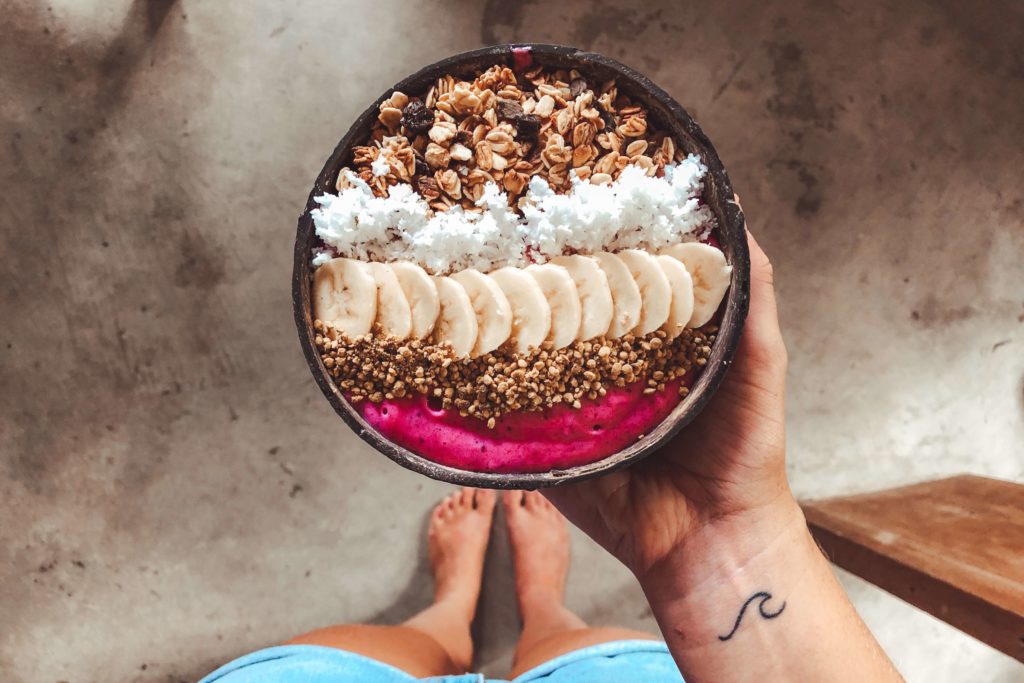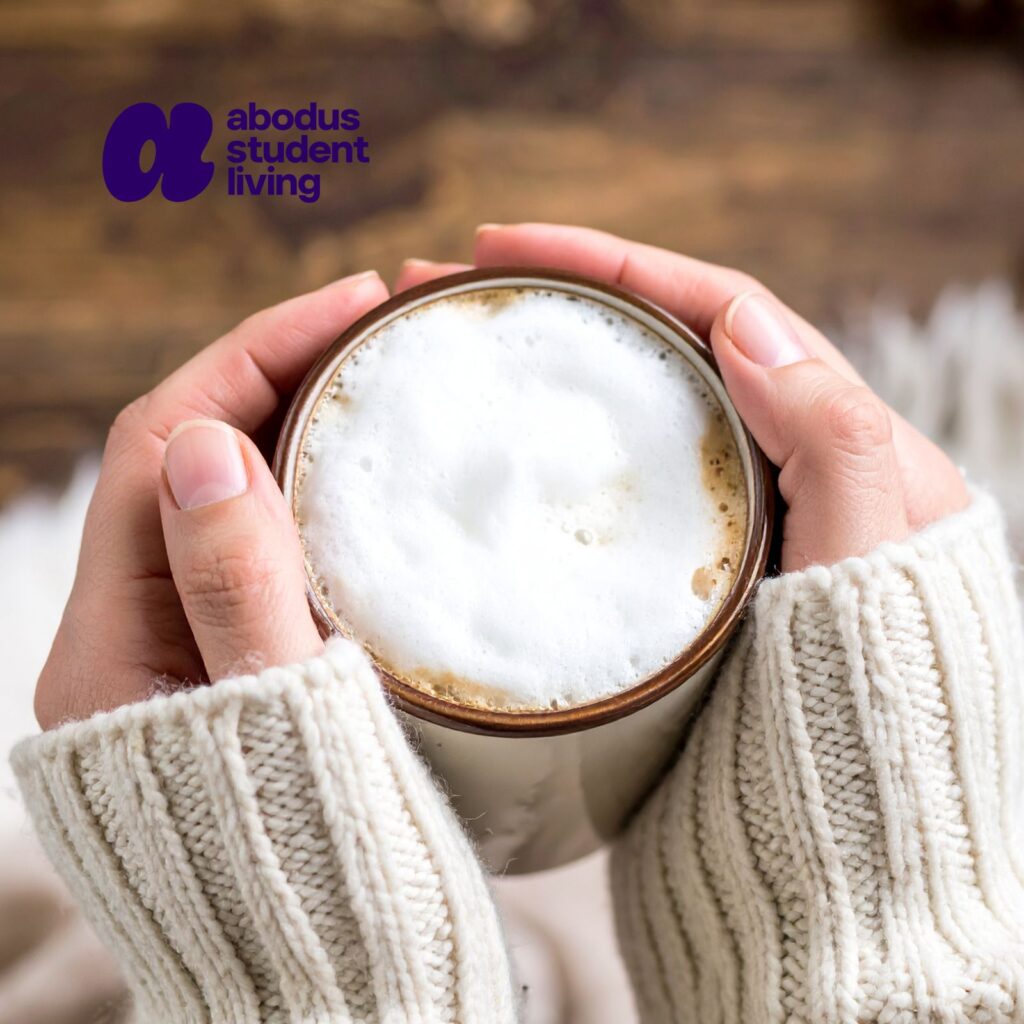 Guest blog by Nutritionist and Recipe Developer, Hannah Trueman
Guest blog by Nutritionist and Recipe Developer, Hannah Trueman
Gut health is something we all need to think about and take steps to improve, for the simple reason that there isn’t a bodily function or process that isn’t affected by it in some way. In today’s world, we tend to shy away from topics such as intestines and all the lovely digestive symptoms that can occur within them (gas, bloating, reflux, constipation, diarrhoea etc) and, of course bowel movements. What we put into out bodies is key to our health, but looking at what comes out the other end gives a lot away about what’s going on outside, specifically what’s being absorbed and what’s being eliminated. As a nutritionist, I spend a lot of time discussing this topic with my clients and am fascinated by the ever-growing body of research into gut health, the microbiome (the bugs that live in our gut and help us break down our food, along with a whole host of other processes they are involved in) and their implications for human health. If you want to improve any aspect of your physical or mental health, the gut is a good place to start.
What actually is gut health, and what do our guts do?
Gut health refers to the physiological state and function of the gastrointestinal tract (GIT) and encompasses every structure, organ and process your food encounters along its journey into, through and out of your body. Within the gut live trillions of bacteria, fungi and other microbes, known as the microbiome. The GIT is where digestion occurs, that is the process by which the food and drinks we consume are broken down by the body into substances that can be used for energy, growth and cell repair. The GIT and microbiome are influenced by and sensitive to a range of factors including but not limited to, genetics, diet, exercise and stress. Compromised digestive functioning can result in nutrient deficiencies, unpleasant digestive symptoms, under or over active immune function, increased susceptibility to chronic disease and more. This is due, not only to the nutritional status of an individual and the level of toxic burden, but the fact that the GIT, specifically the microbiome, plays an important role in regulating immune function, endocrine function (hormonal, but not just our reproductive hormones) and cognitive (brain) function. It’s also where waste products and toxins are eliminated, which is essential for health as it reduces the toxic burden on the body. Ultimately the better our digestion is working, the more goodness we are able to extract from our food meaning that the cells of our body have more nutrients and energy available to keep us healthy, and the more easily our bodies are able to excrete toxins.
How can we improve our gut health?
• Eat more plants and whole foods, as close to their natural state as possible. A varied, plant-centric diet provides your body with more fibre, prebiotics and other essential nutrients, all of which are essential for a healthy and happy gut as they improve the quantity and quality of good bacteria, whilst limiting the growth of bad bacteria Note: If you are not used to eating a lot of fibre-rich foods (fruits, vegetables, whole grains, beans, lentils etc), introduce them gradually. Consult with your GP or work with a nutritionist when making significant changes to your diet
• Include fermented foods and drinks such as kimchi, sauerkraut, kombucha, kefir, miso and yoghurt etc. The fermentation process means these products are partially broken down before they even enter the body, meaning they are easier to digest and extract nutrients from. They are also rich in lactic acid and beneficial bacteria Note: Introduce fermented foods gradually. Consult with a practitioner if any persistent symptoms occur as this may be a sign of an underlying condition or imbalance such as SIBO (small intestinal bacterial overgrowth)
• Chew your food thoroughly. Slow, mindful eating and thorough chewing means our food is partially broken down before it even enters our gut, which uses less resources and energy further down the trac(k)t! Connecting with your food and engaging your senses before, during and after you eat, triggers a cascade of processes and secretions throughout the GIT, helping things both move along and break down more easily and efficiently
• Look after your mind. What’s good for your mind is good for your gut, and vice versa. Incorporate daily mindful practices such as meditation, journalling, time in nature, mindful movement and making time to do more of what you love. Health is about so much more than just the food we eat. Taking a holistic approach that includes lifestyle practices as well as dietary modifications will amplify the benefits of all that beautiful food you’re eating
• Prioritise consistent, good quality sleep. I’m a huge advocate of sleep in my clinical practice and there’s not an organ or bodily process that doesn’t benefit from it. Aim for 7-9 hours every night and try to go to bed and wake up at a similar time each day if possible as this helps with sleep quality
• Move your body every day. Regular movement has been shown to contribute to a more densely populated and diverse microbiome. Include some kind of movement every day and make it fun! Find what feels good and keep things varied.
My top foods for gut health (in no particular order):
• Stewed apple. Raw apples are rich in pectin anyway, but stewing them brings out this gut-loving starch even more. Delicious on porridge, overnight oats or served with pancakes and yoghurt, spread on sourdough with tahini or nut butter, or used in baking for natural sweetness
• Miso: Add to dips and dressings or use to season hot dishes. Do this by removing a small amount of the cooking water halfway through cooking, then make a paste with the miso, which you can then stir through the dish once it has been removed from the heat. This avoids denaturing any of the beautiful enzymes in the miso during cooking, as they are sensitive to heat
• Foods rich in polyphenols: fruits, vegetables and whole grains, especially berries, herbs and spices, cocao powder, nuts, flaxseeds, olives, tea (especially black and green) and coffee
• Yoghurt: Opt for sugar free, full fat varieties • Sauerkraut and kimchi: Again, look for unpasteurised products, organic if possible. You can even make your own, try this recipe
• Kefir and kombucha: Again, choosing unpasteurised products is important
• Upon waking, or 10 minutes before meals: add lemon juice, apple cider vinegar or freshly grated ginger in warm (not boiling) water to stimulate digestion Note: consult with a qualified health practitioner or GP before making sudden changes to your diet.
Main takeaways
• Aim to eat a varied diet, based predominately on whole foods, fruits and vegetables as close to their natural state as possible
• Add in extra goodies like fermented foods and beverages for an extra hit of goodness
• The food and drinks you consume have a profound effect on your gut health and overall wellbeing, but don’t forget about the other stuff too. Adequate sleep, regular movement and stress management amplify the benefits of good diet and support the body at every level.







